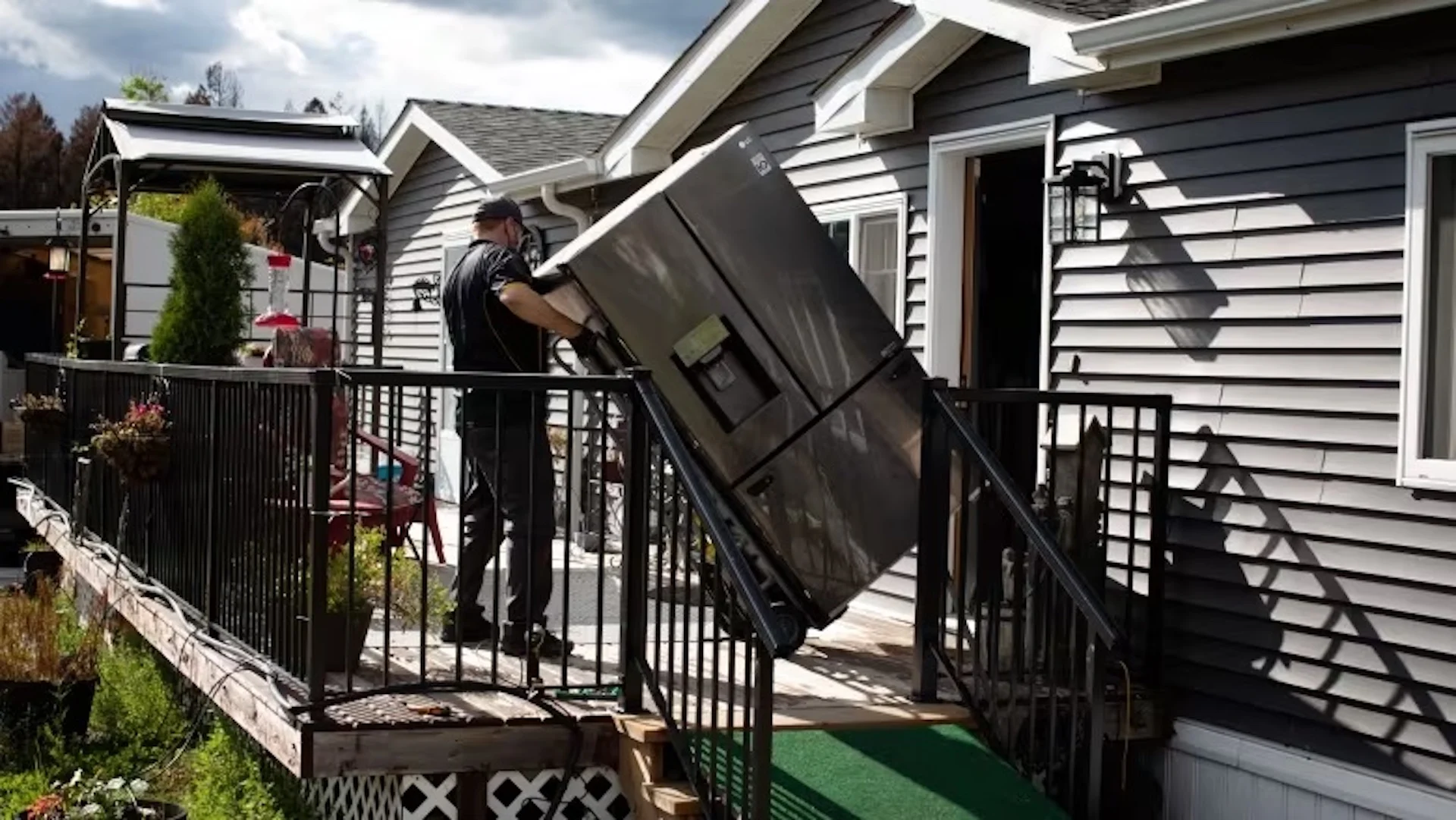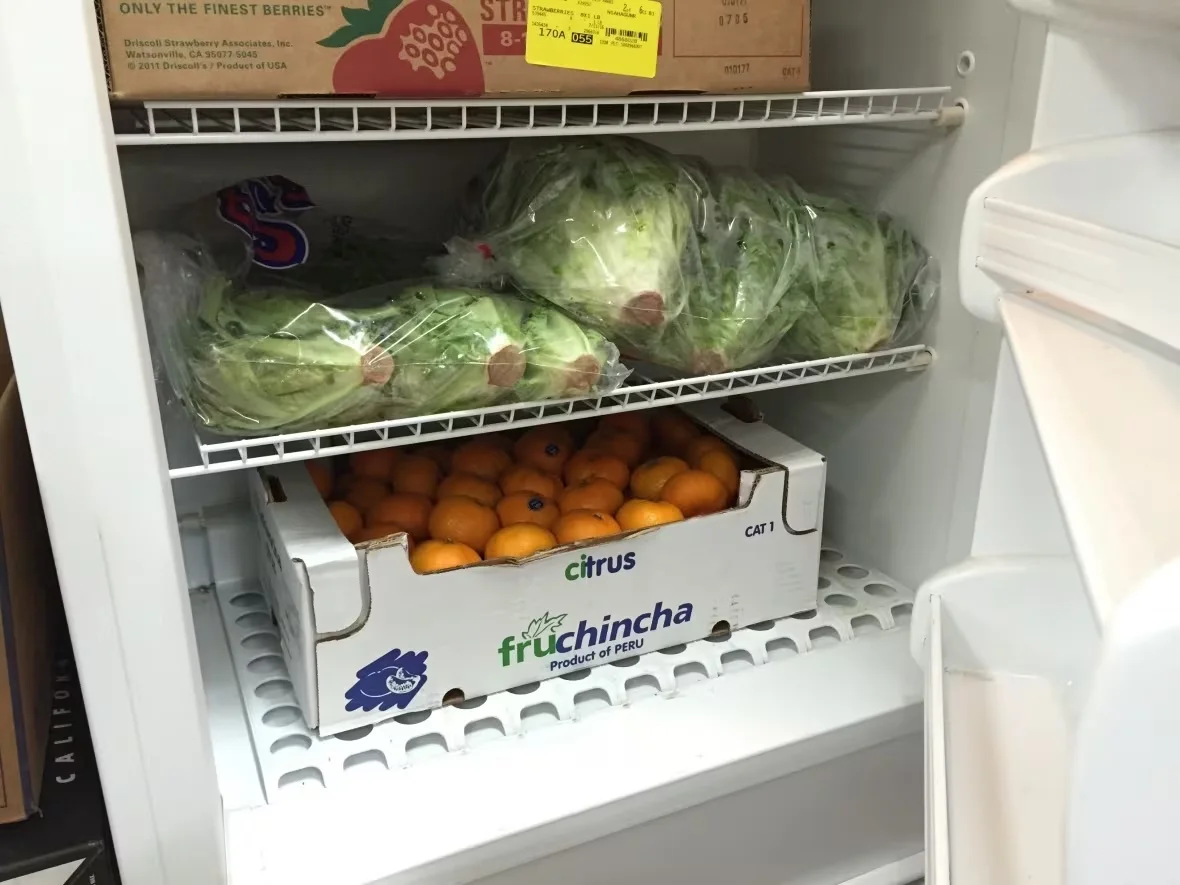
What to do with fridge full of food after long, wildfire-induced power outage
Visit The Weather Network's wildfire hub to keep up with the latest on the unprecedented wildfire season across Canada.
As evacuation orders are rescinded in some areas affected by wildfires across British Columbia, residents returning home are being advised to be careful with refrigerators that have been without power for days.
"People should be really cautious with their fridges and consider not opening them," said Lance Kayfish, risk management officer for the Regional District of Central Okanagan's emergency operations centre.
A common sight after homes lose electricity is non-functioning fridges and freezers filled with spoiled and odorous perishables.
Kayfish anticipates that approximately 1,000 appliances filled or tainted with spoiled food will be discarded by residents whose homes experienced an extended power outage during the Grouse Complex wildfires in the Central Okanagan.
SEE ALSO: How to prevent food from getting spoiled during a power outage
In North Shuswap, 430 utility poles were damaged by the Bush Creek East wildfire, said Susan Edgell, stakeholder engagement adviser at B.C. Hydro.
"We have contractors coming in to help with our crews right now — about 120 out there — putting poles in and digging holes to put those poles in," she told Shelley Joyce, host of CBC's Daybreak Kamloops.

Health Canada says food stored amid a temperature higher than 4 C risks a rapid growth of bacteria, causing various foodborne illnesses. (Mike Zartler/CBC)
"It's a lot of work, and it's a lot of patience on behalf of all the Hydro customers."
Food spoils at temperatures over 4 C
To ensure the safety of refrigerated and frozen food, Health Canada advises maintaining temperatures below 4 C for refrigerated items and below -18 C for frozen ones.
Temperatures over 4 C can lead to rapid bacterial growth and potential foodborne illnesses.
Kayfish says if people want to dispose of fridges and freezers that have been without power for an extended period, they should seal its doors with duct tape and ask their local emergency operation centre to arrange a curbside pickup.
"We understand that people have been out of their home for quite an extended period. Perhaps the last thing that they want to do is figure out how to manage what could be a very messy and difficult sort of process in terms of getting their fridge to the landfill or otherwise disposing of it," he said.
WATCH: Worried about a power outage? How to prep ahead of time
The Thompson-Nicola Regional District recommends labelling discarded fridges and freezers with the word "contaminated" in large letters before having them picked up or transporting them to local depots that recycle large appliances.
Spoilage resulting from wildfire typically covered: insurer
Keith McNabb, owner of The Delivery Guys company in 100 Mile House, which specializes in delivering new appliances, recalls his team replacing approximately 900 fridges containing spoiled food after a 2017 wildfire that originated west of the community.
"We worked almost right until midnight just to keep up with the flow … It was overwhelming.
"There were some people that bought their fridge today, and they wanted it today," McNabb said of the demand at the time.
According to the Insurance Bureau of Canada, fridges, freezers and their contents are covered for a specific amount in case of power interruptions due to wildfires.

(Getty Images - 857145602)
It recommends documenting spoiled food items through lists and photos if possible and advises policyholders to consult insurers before discarding their appliances.
Grant Stobbe, managing director of Okanagan Valley Insurance Services in Kelowna, says people may be able to make claims of up to $5,000 for food spoilage in fridges due to wildfire-induced power outages without being required to provide extensive proof.
"You could take a photo if you want, but especially in this particular case [of wildfires], the insurance companies usually are very empathetic and don't really press an issue to get receipts that much," Stobbe said.
Thumbnail courtesy of Maggie MacPherson/CBC.
The story was originally written and published for CBC News. It contains files from Daybreak Kamloops, Jordan Tucker and Brady Strachan.









